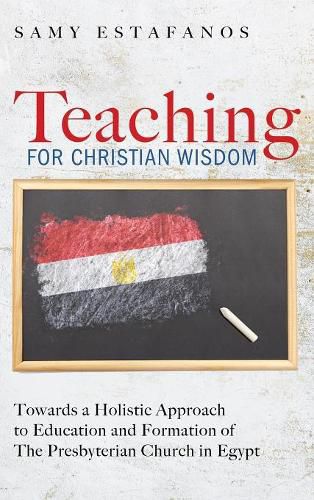Readings Newsletter
Become a Readings Member to make your shopping experience even easier.
Sign in or sign up for free!
You’re not far away from qualifying for FREE standard shipping within Australia
You’ve qualified for FREE standard shipping within Australia
The cart is loading…






This title is printed to order. This book may have been self-published. If so, we cannot guarantee the quality of the content. In the main most books will have gone through the editing process however some may not. We therefore suggest that you be aware of this before ordering this book. If in doubt check either the author or publisher’s details as we are unable to accept any returns unless they are faulty. Please contact us if you have any questions.
In many ways, Christian education in the Presbyterian Church in Egypt was deeply influenced by public education in Egypt. One of the negative consequences of such influence is the significant lack of developing and using critical thinking as a basic element of the process. While multiple factors–educational and theological–contribute to forming it, this problem manifests itself in many ways. The present research deals with the lack of critical thinking as a central problematic reality of the Christian education process in the Presbyterian Church in Egypt. In order to illuminate and address this problematic situation, Richard Osmer’s understanding of Christian education as practical theology is used to bring into dialogue American philosopher, psychologist, and educator John Dewey and reformer and theologian John Calvin. In light of this dialogue, not only the lack of critical thinking but also multiple other dimensions of the problematic situation of Christian education in the Presbyterian Church in Egypt are illuminated. Lack of democracy, lack of the use of experience, lack of creative pedagogies, lack of practical reason, and lack of theology from the process are some of these dimensions. Adapting Osmer’s comprehensive approach to Christian education as practical theology, Samy Estafanos proposes a holistic approach towards Christian education that aims at transforming education into a reconciling process.
$9.00 standard shipping within Australia
FREE standard shipping within Australia for orders over $100.00
Express & International shipping calculated at checkout
This title is printed to order. This book may have been self-published. If so, we cannot guarantee the quality of the content. In the main most books will have gone through the editing process however some may not. We therefore suggest that you be aware of this before ordering this book. If in doubt check either the author or publisher’s details as we are unable to accept any returns unless they are faulty. Please contact us if you have any questions.
In many ways, Christian education in the Presbyterian Church in Egypt was deeply influenced by public education in Egypt. One of the negative consequences of such influence is the significant lack of developing and using critical thinking as a basic element of the process. While multiple factors–educational and theological–contribute to forming it, this problem manifests itself in many ways. The present research deals with the lack of critical thinking as a central problematic reality of the Christian education process in the Presbyterian Church in Egypt. In order to illuminate and address this problematic situation, Richard Osmer’s understanding of Christian education as practical theology is used to bring into dialogue American philosopher, psychologist, and educator John Dewey and reformer and theologian John Calvin. In light of this dialogue, not only the lack of critical thinking but also multiple other dimensions of the problematic situation of Christian education in the Presbyterian Church in Egypt are illuminated. Lack of democracy, lack of the use of experience, lack of creative pedagogies, lack of practical reason, and lack of theology from the process are some of these dimensions. Adapting Osmer’s comprehensive approach to Christian education as practical theology, Samy Estafanos proposes a holistic approach towards Christian education that aims at transforming education into a reconciling process.